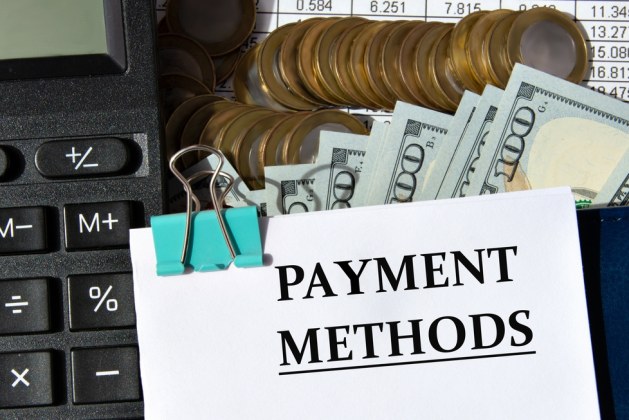The rapid growth of e-commerce and digital transactions in Pakistan has made online payment methods an essential part of everyday life. However, this convenience comes with significant security concerns. Cyber threats, including phishing scams, data breaches, and fraudulent transactions, have become increasingly prevalent, posing risks to consumers and businesses. The security of online payment methods in Pakistan is further complicated by the varying levels of awareness among users and the evolving nature of cyber threats. To address these challenges, it is crucial to implement robust security measures and educate users on best practices. This blog explores the common security concerns associated with online payment methods in Pakistan and offers practical solutions to enhance security, ensuring that digital transactions remain safe and trustworthy. By understanding these issues and taking proactive steps, Pakistan can continue to benefit from the digital economy while minimizing risks.
Security Concerns in Online Payment Methods in Pakistan
Online payment methods in Pakistan have become increasingly popular as more consumers embrace the convenience of digital transactions. However, this growth has also brought about significant security concerns. One of the most pressing issues is the rise in cyber threats, including phishing scams, which trick users into revealing sensitive information such as credit card details and passwords. Additionally, data breaches have become a common occurrence, exposing the personal and financial information of countless users.
Another major security concern in online payment methods in Pakistan is the risk of fraudulent transactions. Cybercriminals exploit vulnerabilities in payment systems to conduct unauthorized transactions, leading to financial losses for both consumers and businesses. The lack of awareness among users about these threats further exacerbates the problem, as many are not equipped to recognize or respond to suspicious activities.
To address these security concerns in online payment methods, both users and service providers need to adopt strong security practices. This includes using advanced encryption, implementing two-factor authentication, and regularly updating security protocols. By taking these precautions, the risks associated with online payment methods in Pakistan can be significantly reduced, ensuring safer and more secure digital transactions for everyone involved.
Government Regulations for Secure Online Payment Methods
Government regulations play a crucial role in ensuring the security of online payment methods, particularly when it comes to the use of payment gateways in Pakistan. The State Bank of Pakistan (SBP) has established stringent guidelines to regulate the operations of payment service providers and payment gateways in Pakistan. These regulations are designed to safeguard consumers’ financial data and protect against cyber threats that could compromise online transactions.
One key aspect of these regulations is the requirement for payment gateways in Pakistan to comply with international security standards, such as the Payment Card Industry Data Security Standard (PCI DSS). This ensures that all payment gateways operate with a high level of security, minimizing the risk of data breaches and fraud. Additionally, the SBP mandates regular audits and compliance checks to ensure that payment gateways in Pakistan maintain these standards consistently.
Furthermore, the government has implemented consumer protection laws that offer recourse for users in the event of unauthorized transactions or data breaches. These laws are designed to build trust in online payment systems and encourage the adoption of digital payments across the country. By enforcing these regulations, the government aims to create a secure environment for digital transactions, ensuring that payment gateways in Pakistan remain reliable and secure for all users.
Best Practices for Safe Online Payment Methods in Pakistan
To ensure safe online payment methods in Pakistan, both consumers and businesses must adopt best practices that protect against the ever-present risks of cyber threats. One of the most effective practices is the use of two-factor authentication (2FA). By requiring a second form of verification, such as a one-time password sent to a mobile device, 2FA significantly reduces the chances of unauthorized access to sensitive accounts.
Another critical practice is selecting reliable and secure payment gateways. Consumers should opt for well-known and reputable payment gateways in Pakistan that comply with international security standards, such as PCI DSS (Payment Card Industry Data Security Standard). This ensures that the transaction data is encrypted and less vulnerable to interception by cybercriminals.
Keeping devices and software updated is also essential for maintaining security. Regularly updating operating systems, antivirus software, and applications helps close vulnerabilities that hackers might exploit. Additionally, users should be cautious when clicking on links or downloading attachments, as these are common methods used in phishing attacks designed to steal personal and financial information.
Lastly, it’s important to monitor accounts regularly for any suspicious activity. Immediate reporting of unauthorized transactions can help prevent further damage. By following these best practices, individuals and businesses can significantly enhance the security of online payment methods in Pakistan.
Solutions to Enhance Security in Online Payment Methods
Enhancing security in online payment methods is essential to protect consumers and businesses from the growing threats of cybercrime. One of the most effective solutions is the implementation of advanced encryption techniques. Encryption ensures that sensitive data, such as credit card information and personal details, are securely transmitted and stored, making it difficult for unauthorized parties to access or tamper with this data.
Two-factor authentication (2FA) is another powerful tool to enhance security. By requiring an additional verification step, such as a code sent to a user’s mobile device, 2FA adds an extra layer of protection against unauthorized access, even if login credentials are compromised.
Biometric authentication is an emerging solution that offers a higher level of security by using unique biological traits, such as fingerprints or facial recognition, to verify a user’s identity. This technology is harder to replicate and provides a more secure alternative to traditional passwords.
Furthermore, artificial intelligence (AI) and machine learning can be leveraged to detect and prevent fraudulent activities in real-time. By analyzing transaction patterns and identifying anomalies, AI systems can quickly flag suspicious activities, allowing for immediate action to be taken.
By adopting these solutions, businesses and consumers can significantly reduce the risks associated with online payment methods, ensuring safer digital transactions
.
The Future of Secure Online Payment Methods in Pakistan
The future of secure online payment methods in Pakistan is poised for significant advancements, driven by the rapid adoption of new technologies and the increasing focus on cybersecurity. As digital transactions continue to grow, both businesses and consumers are demanding more robust and secure payment systems.
One of the key trends shaping the future is the integration of blockchain technology into payment systems. Blockchain offers a decentralized and transparent way to process transactions, reducing the risk of fraud and enhancing security by ensuring that each transaction is verifiable and immutable.
Biometric authentication is expected to become more widespread, offering a secure and user-friendly way to verify identities. This technology, which includes fingerprint scanning, facial recognition, and even voice identification, provides a higher level of security compared to traditional passwords and PINs.
Artificial intelligence (AI) and machine learning will continue to play a critical role in the future of secure online payment methods. These technologies can detect unusual patterns in transaction data, enabling real-time fraud detection and prevention.
Finally, as government regulations evolve, there will be stricter compliance requirements for payment gateways in Pakistan. This will drive the adoption of higher security standards across the industry, ensuring that online payment methods remain secure and reliable for all users.
Conclusion
In conclusion, the security of online payment methods in Pakistan is a critical issue that requires ongoing attention from both consumers and businesses. As digital transactions become more prevalent, the risks associated with cyber threats, such as phishing, data breaches, and fraudulent activities, also increase. However, by adopting best practices, such as using two-factor authentication, choosing reliable payment gateways, and staying informed about potential threats, users can significantly enhance their online payment security.
Furthermore, the future of secure online payment methods in Pakistan looks promising, with advancements in technology like blockchain, biometric authentication, and artificial intelligence offering new ways to safeguard transactions. Government regulations will also play a crucial role in shaping a secure digital environment, ensuring that all stakeholders adhere to high security standards. By staying proactive and embracing these solutions, Pakistan can continue to build a secure and trustworthy online payment ecosystem that supports its growing digital economy.




Leave a comment